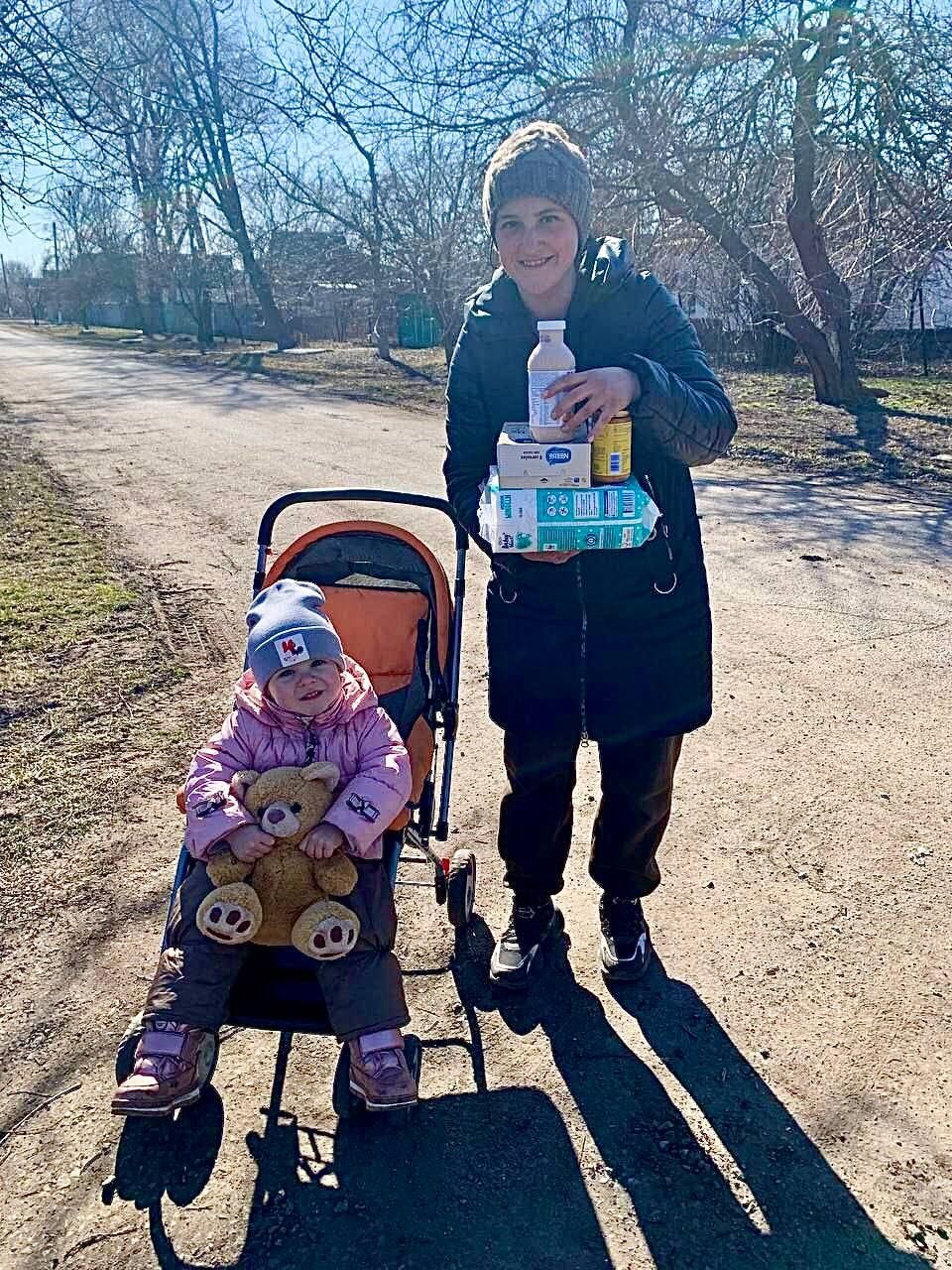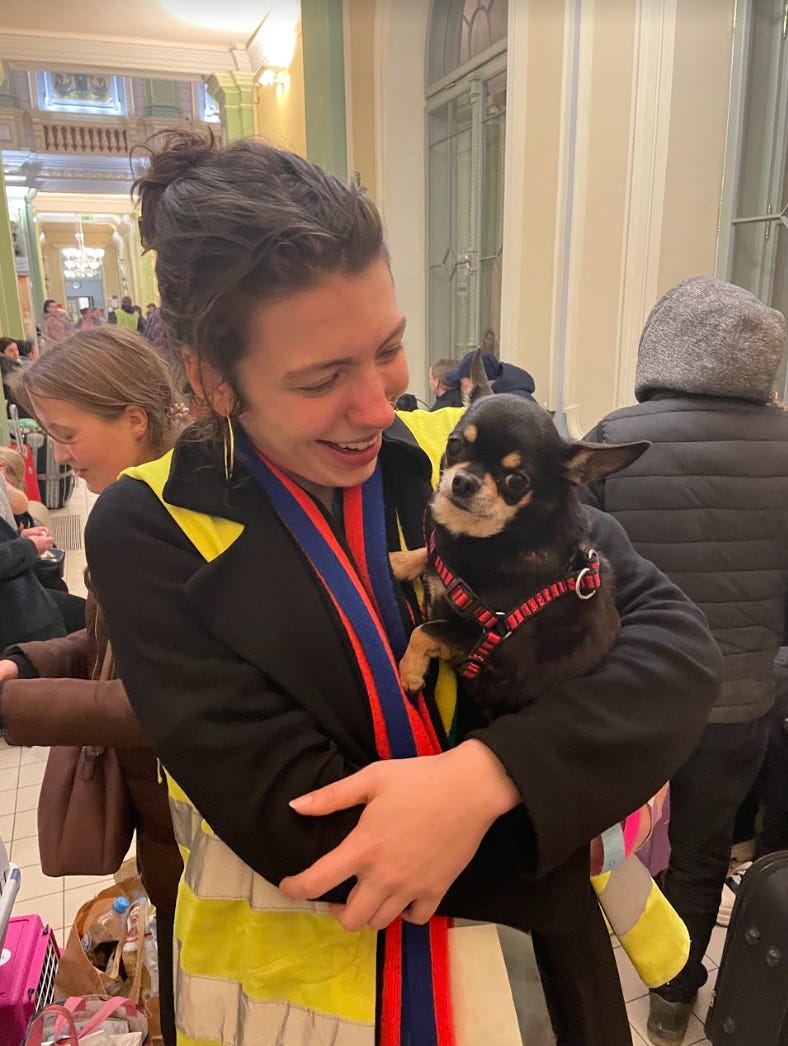34-41: Kharkiv and Przemyśl
I feel like all regular subscribers to this Substack will have a pretty good idea of our work in Przemyśl, which continues to expand as we are able to afford to book out more hotel rooms, buy more suitcases, and connect with more people. I thought it would be good to also introduce you all to our work in Kharkiv.
For context: Kharkiv is the second largest city in Ukraine, and is just 35 kilometres from the Russian border. A predominantly Russian speaking city, it has been under continued sustained attack, with near constant air raid sirens. It is impossible to pinpoint the exact death toll, but it is in the hundreds at the very least – and even higher in the wider region, where Russian soldiers have occupied multiple villages. The battle for the city has been described as ‘the Stalingrad of the 21st century’ and continues to be one of the deadliest in the country.
Tatiana is our main contact in Kharkiv. We have been working with her and the Kharkiv Aid Office since the second week of the war, after Alex was put in touch with her by a refugee he met in Krakow.
In her previous life, Tatiana was a personal trainer. Now she organises food and medicine deliveries across the region, and it is a genuine honour to be able to help her in this work, whether it be sending shipments directly, or giving her money for fuel.
After spending the first two days of the war in a state of shock, on the third Tatiana sprang into action. ‘Our entire previous lives had disappeared’, she told me, ‘and it was clear that there was no time to be idle – we needed to do everything possible to help, to save people, and to bring our country closer to victory’. Now, as the war approaches its ninth week, the Kharkiv Aid Office provides food for around 4,200 people a week, as well as providing primary medical equipment to Kharkiv hospitals.
Tatiana is not hopeful that the need will decrease any time soon; ‘the situation in Kharkiv is not improving. Our priority right now is to work in the areas most effected by active shelling, where, unfortunately, many civilians remain. These are predominantly pensioners – those who cannot leave the city, be it for health reasons, or out of a sense of moral obligation to stay. As you see on the news, there is an ongoing offensive against our people.’.
We would love to be able to leave this work to the big NGOs – the ones who have raised millions since the start of the war – but the truth of the matter is that they simply aren’t present on the ground in any meaningful way, and the form filling they require in order to send any supplies into the city is not feasible for someone like Tatiana. She is leading this response effort, driving back and forth from Kharkiv to Lviv to pick up supplies (this is equivalent to the distance between Falmouth and Aberdeen), all whilst having to keep herself safe when the air raid sirens sound.
Last week, we sent two tonnes of food directly to Kharkiv. Today we are anticipating a huge medication delivery to our Przemyśl warehouse, ready to be shipped in the morning. We are getting this work done, and we are doing it quickly and efficiently, but we cannot do it without your donations. Please keep giving.
On the Przemyśl end, things continue in much the same vein. Every day we see more broken people coming through the border and the stories we are hearing are increasingly brutal. There was the woman from Slovyansk who was meant to be at the train station when the bomb went off but delayed her departure after a ‘premonition’. Then was the family from Kherson who we put up in a hotel for the night – they had escaped in a volunteer-organised convoy, and every car in front of theirs had been shot at. A mother and daughter from a town twenty kilometres arrived with two rabbits and a cat and told me that they had been sent a video that morning of their local supermarket being shot up by Russian soldiers. They offered to show me the video, desperate to provide evidence of this atrocity. I didn’t need to see a video to believe them. Another woman from Mariupol vividly described running away from her apartment block as it blew up. As I write this, there are around a thousand women and children sheltering under the Azov steel plant in Mariupol as the Russians continue to shell it. Unless something dramatic changes, they will all be dead within the week.
Taking all of this into consideration, I must implore everyone reading this to recognise what is happening for what it is: genocide. Ukraine is waging an existential battle, and it must win. I firmly believe that this will happen - but until it does, we continue to need your help to keep supporting the ordinary victims of this fascist invasion.
On a more positive note, it has been a huge privilege to have done some work with Off The Grid Missions over the past week. They are a Deaf organization, working to evacuate Deaf people from hotspots across Ukraine. On our end, we have been organising transport and hotels for those people they drop off in Przemyśl. It is a strange experience, having come here as an interpreter, to be left unable to speak with any ease, but I enjoyed a lovely picnic dinner brought all the way from Dnipro last week, and through lip reading and sign, we managed to get to know one another.
Thank you all for your continued support. I will be returning to the UK to finish the final term of my Masters next week, before coming back out to the border as soon as my exams end to continue this work. When I arrived in Poland two weeks after the start of the war, the idea that six weeks later I would be planning to return to continue work – that the war wouldn’t even be close to being over – would have been unthinkable. Now we are planning for the long term, as it comes increasingly clear that Russia’s genocidal campaign in Ukraine is showing no sign of ending.
As always - Слава Україні!
our new warehouse!
essentials delivered in Kharkiv.
a chihuahua from Kharkiv, who was far less enthusiastic to meet me than I was him.






